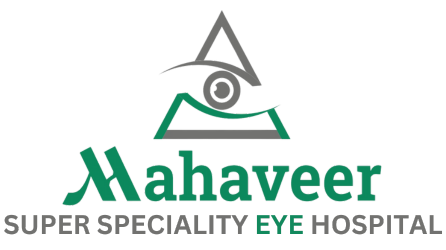Choosing between LASIK eye surgery and contact lenses is a common consideration for individuals seeking clearer vision. While contact lenses have long been a popular option for vision correction, LASIK offers a permanent alternative. This blog explores the pros and cons of both options to help you make an informed decision.
Overview of LASIK and Contact Lenses
LASIK (Laser-Assisted In Situ Keratomileusis) is a surgical procedure that uses lasers to reshape the cornea, correcting vision issues like myopia, hyperopia, and astigmatism. It is a permanent solution that offers the potential for life-long freedom from corrective eyewear.
Contact Lenses are thin, medical-grade lenses placed directly on the eye to correct vision issues. Unlike LASIK, contacts provide a temporary solution, which can be effective as long as the lenses are worn.
Benefits of LASIK
- Permanent Vision Correction
LASIK can permanently correct vision, providing a long-term alternative to glasses or contacts.
2. Convenience
Once the procedure is completed and recovery is achieved, there’s no need for daily maintenance or replacement.
3. Clear Vision
Many patients experience improved vision clarity immediately after surgery, and most achieve 20/20 vision or better.
4. Cost-Effective Over Time
While LASIK has an upfront cost, it can be more economical than years of buying contact lenses, cleaning solutions, and cases.
Risks of LASIK
1. Surgical Risks
As with any surgery, LASIK comes with risks such as infection, dry eyes, or visual disturbances like glare or halos.
2. Not Suitable for Everyone
Some individuals, particularly those with thin corneas, severe refractive errors, or certain medical conditions, may not be eligible for LASIK.
3. Recovery Time
While minimal, there is a short recovery period after LASIK. Patients must avoid certain activities for a few days or weeks to ensure proper healing.
Benefits of Contact Lenses
1. Non-Invasive
Contacts are an external solution, avoiding any surgical intervention.
2. Wide Prescription Range
Contact lenses are available for a variety of vision needs, including multifocal and astigmatism corrections.
3. Flexible Usage
Contacts are a reversible solution, allowing people to switch back to glasses or pursue LASIK in the future if desired.
Risks of Contact Lenses
1. Risk of Eye Infections
Contacts can increase the risk of eye infections, especially with improper cleaning or overnight wear.
2. Cost and Maintenance
Contacts require regular purchases, as well as cleaning solutions and cases. This cost can add up significantly over time.
3. Discomfort and Dryness
Some individuals experience eye dryness or discomfort after prolonged contact lens use, especially in dry environments.
Cost Comparison: LASIK vs. Contact Lenses
The cost of LASIK typically ranges from $2,000 to $3,000 per eye, depending on factors like technology and the surgeon’s experience. Although LASIK has a higher upfront cost, it can become a cost-effective choice over the years compared to continuous spending on contact lenses and their accessories.
In comparison, contact lenses can cost approximately $200 to $500 per year for disposable lenses, plus additional costs for cleaning solutions and cases. Over a decade, contact lens wearers could spend around $2,000 to $5,000, potentially exceeding the one-time cost of LASIK.
Which Option is Right for You?
Choosing between LASIK and contact lenses ultimately depends on individual preferences, lifestyle, budget, and eye health. A consultation at Mahaveer Eye Hospital can help determine the best choice based on your specific needs.
Conclusion
Both LASIK and contact lenses offer unique advantages and drawbacks. While LASIK provides a long-term solution, contact lenses offer flexibility without surgery. If you’re considering LASIK or simply want to learn more, Mahaveer Eye Hospital can guide you through your options to find the ideal path to clearer vision.
Schedule a Consultation with Mahaveer Eye Hospital
Whether you’re leaning toward LASIK or prefer the convenience of contact lenses, Mahaveer Eye Hospital offers comprehensive eye care to help you make the best choice. Reach out today to begin your journey toward clearer vision.



